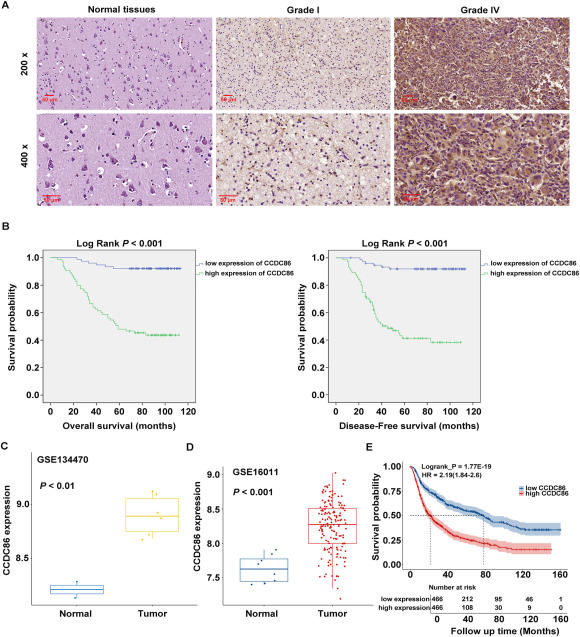
CCDC86-BHLHE40-ATF3 axis promotes aerobic glycolysis and tumor development in glioma


Glioma, an aggressively malignant brain tumor with a poor prognosis, comprises nearly 50% of all primary malignant brain tumors. Despite its significance in other cancers, the role of coiled-coil domain containing 86(CCDC86) in glioma remains largely unexplored. Our study revealed a significant up-regulation of CCDC86 expression in glioma tissues, correlating notably with patient age, tumor recurrence, and pathological grade. Moreover, elevated CCDC86 level was associated with a worsened prognosis among glioma patients. Functional assays demonstrated that CCDC86 knockdown attenuated glioma cell proliferation and migration while inducing apoptosis and cell cycle arrest in vitro and inhibited tumorigenesis in vivo. Furthermore, ATF3 emerged as a downstream target gene of CCDC86, as its knockdown could counteract the oncogenic effects induced by CCDC86 overexpression in glioma cells. Mechanistically, CCDC86 promoted the transcriptional regulation of ATF3 by BHLHE40 through interaction with it, stabilizing the expression of ATF3. Additionally, our investigation unveiled a potential mechanism whereby CCDC86 activated the ERK signaling pathway through ATF3, thus influencing glycolysis to drive tumor progression. In conclusion, our study highlights the pivotal role of CCDC86 in glioma progression, suggesting its potential as a therapeutic target for the development of novel glioma treatments.
